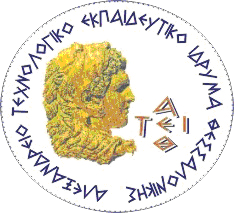Geography
The city of Thessaloniki, located at the northern part of Greece, is the second largest city in the Greece. Thessaloniki is 500 km away by car from Athens.
Greece covers 130,000 square kilometers (a size slightly smaller than Alabama) and is located in the southeastern portion of Europe. It is bordered by the Mediterranean Sea on the south, the Ionian Sea on the west, the Aegean Sea on the east, and the north by Albania, Bulgaria, Turkey and F.Y.R. of Macedonia (formerly Yugoslavia). The country also includes a great number of islands.
Population
Greece: 10.66 million
Thessaloniki: 1,083,000
Ethnic Groups
Greek 98%, other 2%
Languages
Greek is the native language. Most Greeks speak English.
Literacy
95%
Religion
98% Greek Orthodox, 1.3 Muslim, 0.7 Other
Useful Numbers
The country code for Greece: 0030
Police: 100
Tourist police: 171
Report a fire: 199
Ambulance and the hospital: 166
Thessaloniki Tourist Police : 2310554871
Thessaloniki Tourist Organisation : 2310222935
Electricity
To use your U.S.-purchased electric-powered equipment, bring a converter and an adapter. The electrical current in Greece is 220 volts, 50 cycles alternating current AC; wall outlets take Continental-type plugs, with two round prongs.
Time Zone
GMT/UTC +2;
Business Hours
Shops in Thessaloniki are open daily from 9a.m. to 2 p.m. Tuesdays, Thursdays and Fridays they are also open from 5 pm to 8.30 pm. On Saturdays the working hours are from 9 am to 3pm.
Credit Cards
All major credit cards are accepted in Greek shops and restaurants.
Climate
The climate in Thessaloniki is Mediterranean, although if you visit between November and March, the winter season, expect rain. Greek weather in general is warmer in the south than the north, but if you travel into more mountainous areas nearby the temperature is much cooler.
|

